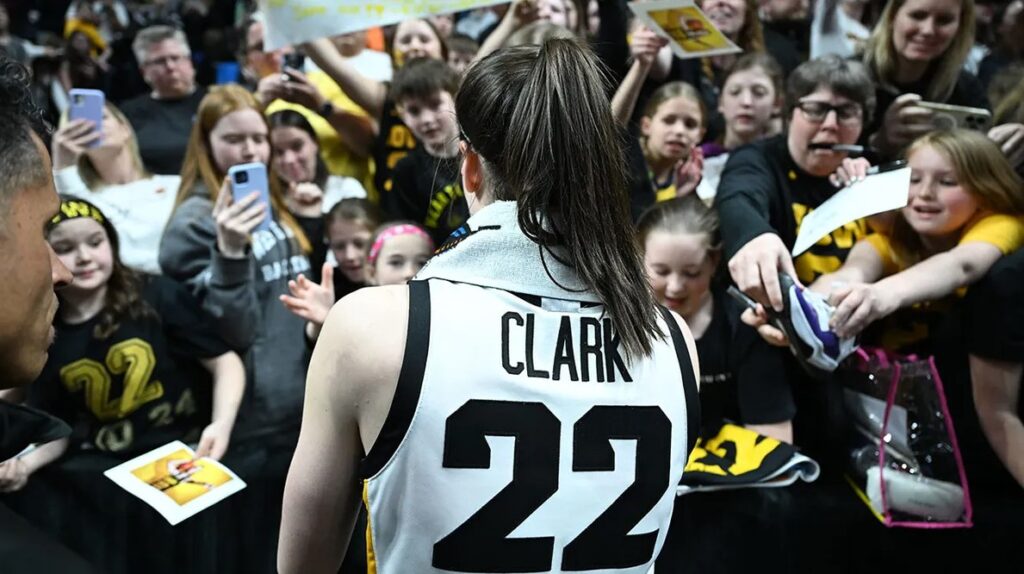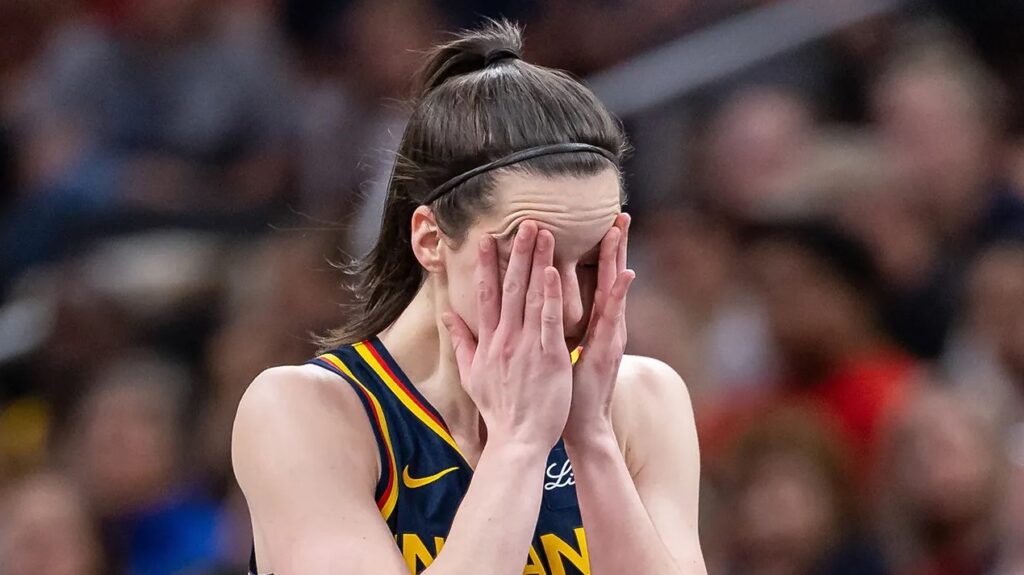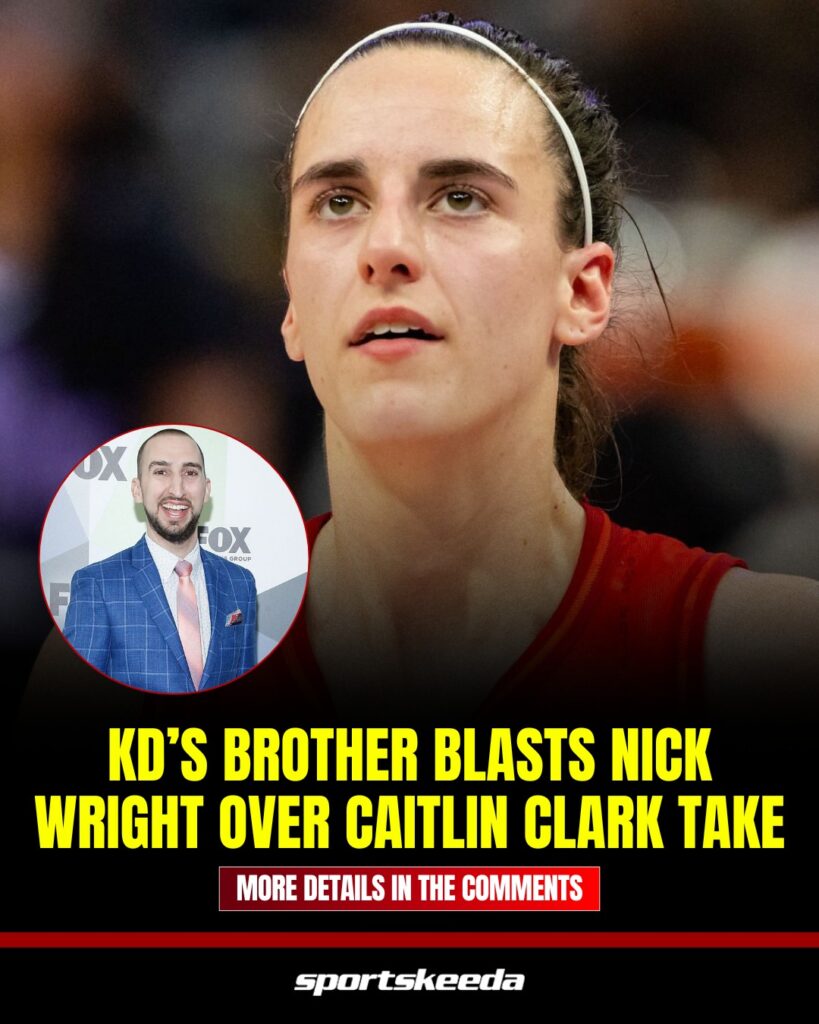“Shut up”: Kevin Durant’s Brother Takes Issue with Nick Wright’s Bold Caitlin Clark Take
The sports media landscape erupted into yet another heated exchange when Tony Durant, brother of NBA superstar Kevin Durant, delivered a scathing response to Fox Sports analyst Nick Wright’s recent commentary about Indiana Fever star Caitlin Clark and her position among America’s elite athletes. Kevin Durant’s brother delivered a withering reply to Nick Wright’s latest comment about Caitlin Clark. The confrontation highlights the ongoing cultural debates surrounding the WNBA phenomenon and the increasingly polarized discussions about athletic greatness across different sports leagues.

The controversy began when Wright, known for his provocative takes on Fox Sports’ “First Things First,” made bold proclamations about Clark’s standing in the hierarchy of American sports superstars, suggesting that she has transcended basketball to become one of the most marketable and influential athletes in the country. Wright’s commentary appeared to focus on Clark’s unprecedented impact on WNBA viewership, attendance figures, and overall cultural relevance, positioning her alongside traditional male sports icons in terms of mainstream appeal and commercial value. However, Tony Durant took exception to Wright’s analysis, responding with a direct and unfiltered message that simply stated, “Shut up Nick!!” demonstrating the raw emotions that Clark-related discussions continue to generate across social media platforms.
The exchange between Tony Durant and Nick Wright represents more than just a typical sports media spat; it illuminates the complex dynamics surrounding how female athletes, particularly those achieving unprecedented success like Clark, are discussed and positioned within the broader sports entertainment ecosystem. Wright has been consistently vocal about Clark’s transformative effect on women’s basketball, arguing that her college career at Iowa and subsequent professional debut have fundamentally altered the landscape of women’s sports in America. The former Iowa star has been nothing short of spectacular and is a major reason why the WNBA has a massive uptrend in its economics. His analysis extends beyond mere statistical achievements to encompass Clark’s role as a cultural phenomenon who has attracted previously untapped audiences to women’s basketball.
Tony Durant’s sharp rebuke reflects a growing frustration among some observers who believe that certain media personalities consistently overlook or undervalue athletes from other sports when making sweeping statements about American athletic royalty. Tony called out Wright for omitting NHL legend Alexander Ovechkin from his list of superstar athletes. This criticism suggests that Wright’s focus on basketball and football stars, while including Clark in his analysis, may be creating blind spots regarding accomplished athletes from other major professional sports leagues, particularly hockey, where Ovechkin has established himself as one of the greatest goal scorers in NHL history.

The broader context of this disagreement reveals the evolving nature of sports celebrity and the challenges media personalities face when attempting to rank or categorize athletes across different sports, genders, and cultural demographics. Wright’s advocacy for Clark stems from documented evidence of her impact on television ratings, merchandise sales, and arena attendance, with the WNBA experiencing record-breaking viewership numbers during her rookie season. Recent analysis suggests that Clark’s influence extends far beyond traditional basketball metrics, as she has successfully bridged the gap between collegiate and professional women’s sports while attracting mainstream media attention typically reserved for male athletes in major sports leagues.
The timing of this confrontation coincides with Clark’s remarkable ascension in professional basketball, where she has continued to validate the extraordinary hype that surrounded her transition from college to the WNBA. Nick Wright says that once LeBron James and Steph Curry retire, Caitlin Clark will be the most popular basketball player in the world. Such bold predictions inevitably generate passionate responses from fans, analysts, and family members of other prominent athletes who may feel their favorites are being overlooked or diminished in these comparative discussions.
The social media nature of Tony Durant’s response also reflects how modern sports discourse increasingly plays out on digital platforms, where family members and associates of athletes feel empowered to directly challenge media narratives without traditional gatekeeping mechanisms. This democratization of sports commentary creates more authentic and immediate reactions but also contributes to the fragmentation and polarization of sports discussions, where nuanced analysis often gets reduced to brief, emotionally charged exchanges that prioritize impact over substance.

The Durant family’s involvement in sports media controversies is not unprecedented, as Kevin Durant himself has frequently engaged with analysts and critics across various platforms, creating a pattern of direct athlete-media interaction that his brother Tony appears to have inherited. This family dynamic adds another layer to the current dispute, suggesting that the Durant household maintains a collective approach to defending their perspectives on sports-related topics and challenging what they perceive as unfair or incomplete analysis from prominent media figures.
Ultimately, the clash between Tony Durant and Nick Wright over Caitlin Clark’s position in American sports hierarchy represents the ongoing evolution of how athletic greatness is measured, discussed, and promoted in contemporary media landscapes. While Wright’s enthusiasm for Clark’s transformative impact on women’s basketball is supported by measurable data and cultural evidence, Tony Durant’s criticism highlights the inherent challenges in making cross-sport comparisons and the sensitivity surrounding how different athletes receive recognition and media coverage. This incident serves as a microcosm of larger conversations about gender equity in sports, media representation, and the complex dynamics that influence how athletic achievements are valued and celebrated in modern American sports culture.